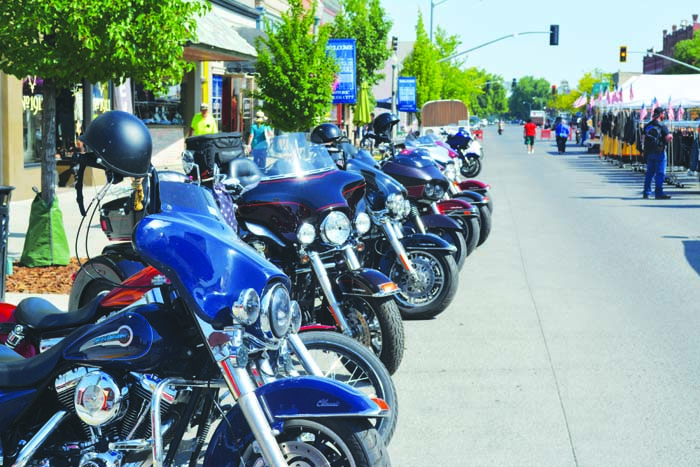COLUMN: Widening the focus on school shooting scourge
Published 12:00 pm Friday, June 3, 2022
The compulsion to try to explain disasters such as the shooting at Robb Elementary School in Uvalde, Texas, is all but impossible to resist.
This is human nature.
Confronted with the incomprehensible — that someone would purposely murder innocent children in their school — we instinctively reject the notion that we could be as powerless against these tragedies as we are to prevent natural disasters such as the tornado that careens across a town, or the bolt of lightning that kills indiscriminately.
But as we refuse to concede our impotence, we sometimes indulge in oversimplification.
I don’t condone this, though I understand it.
There is comfort in being confident that these inexplicable events can be blamed on one factor or another. If we can pinpoint that culprit, the thinking goes, then surely we can deal with it.
The roster of villains, in the emotional aftermath of this latest catastrophe, is predictable, each with its acolytes.
Guns.
Mental health.
American cultural decadence.
The breakdown of the nuclear family.
Lax school security.
Ineffectual police response.
The depressing reality, it seems to me, is that each of those factors, and no doubt others, is implicated to some extent in this continuing national scourge.
Which is to say, school shootings are complicated, indeed unique, despite certain commonalities.
And I don’t believe that we can have any reasonable hope to even partially solve this problem if we refuse to address everything that contributes to these terrible recurring results.
The tortured logic and the half-truths that tend to dominate the national conversation following the latest school shooting fatigue me.
Some commentators dismiss as ineffective any legislation dealing with access to guns, citing such meaningless statistics as how many violent crimes don’t involve firearms, or pointing out that school shooters, who readily commit the ultimate crime, would hardly be deterred by another law.
Of course people commit murder with knives and other weapons.
But when the topic is mass shootings at schools, guns — and in particular how the killer obtained the guns, whether legally or not — couldn’t be more relevant.
Pointing out, to mention one especially obnoxious example I heard recently, that some murderers use hammers is an insulting deflection from the reality of school shootings.
When the issue is kids getting shot, talking about hammer-wielding killers is about as helpful as discussing their gardening habits.
Conversely, those who focus exclusively, or mainly, on guns, who contend that “common sense” gun control laws offer a sure remedy and that cold-hearted legislators who block progress are in effect abetting murderers, seem to me to be more interested in propaganda than in sober analysis.
The inevitable “blood on the hands” accusations leveled at politicians and the National Rifle Association and many others are as useful as statistics about murder by hammer.
It is, of course, as easy to criticize these pundits for their tunnel vision as it is for them to blame one factor and dismiss, or understate, all the others.
I think we ought to examine in great detail all the elements that contribute to this plague. And I believe it’s possible to take actions on each element that could, when combined, potentially prevent some future shooting sprees.
I’m not talking about a solution, per se — at least not as that word is commonly defined.
There are 400 million guns in America.
This is a free society where the government can’t incarcerate people who act strangely.
This helps to make America the great country that it is.
But it also makes us vulnerable.
That lethal combination that we can almost always identify, after Uvalde or Sandy Hook or Columbine — mentally ill young men who everyone seems to agree ought not have access to guns but who did anyway — can’t be excised with a few precise cuts, like a lump of malignant tissue.
But surely that combination can be prevented in some cases.
I have no proposal for how we can change the laws, regarding guns and mental health, to stop that fatal intersection.
And I understand that such changes almost certainly will affect mostly people who would never attack schoolchildren. It can hardly be otherwise, considering the infinitesimal percentage of people who will ever commit such acts.
But those effects, which might include such a minor inconvenience as having to wait longer to buy certain types of guns, or the more significant matter of confining people who today roam society with no restraints, seem to me small things put up against the deaths of children.
Our choices, ultimately, are nothing like as dramatic as the propagandists claim — we needn’t decide to either scrap the Second Amendment or accept every school shooting as inevitable.
Nor do we have to transform our schools into figurative prisons, with bars in every window. Merely locking a door can potentially thwart a shooter. This costs nothing, requires no new laws, and impinges on no one’s rights.
Should we encourage, or at least allow, teachers and other school staff to carry guns if they’ve proved they can do so safely?
This seems reasonable to me. Still and all, I think the mantra that goes something like this — “only a good guy with a gun can stop a bad guy with a gun” — is awfully simplistic, even though the concept is not implausible. The notion that putting guns, handled by responsible adults, in classrooms would be the one factor that persuades a deranged person not to attempt a school shooting seems to me egregiously naive, however.
The universal outrage that follows each school shooting is terribly frustrating in its predictability. But it also renews my hope that this one point of consensus — our collective horror at the carnage — might finally persist beyond our initial disgust and result in tangible changes — to laws governing gun and ammunition purchases, to the incarceration of people with mental health issues, to school security protocols, to police training for mass shootings.
Any one of these could conceivably prevent an individual school shooting.
Working on all of these factors — which is likely to happen only if a lot of people abandon their illogical focus on the one factor that most satisfies their personal political feelings — could yield more substantial results.
And in this situation, those results are measured in the most precious statistic.
Lives.







